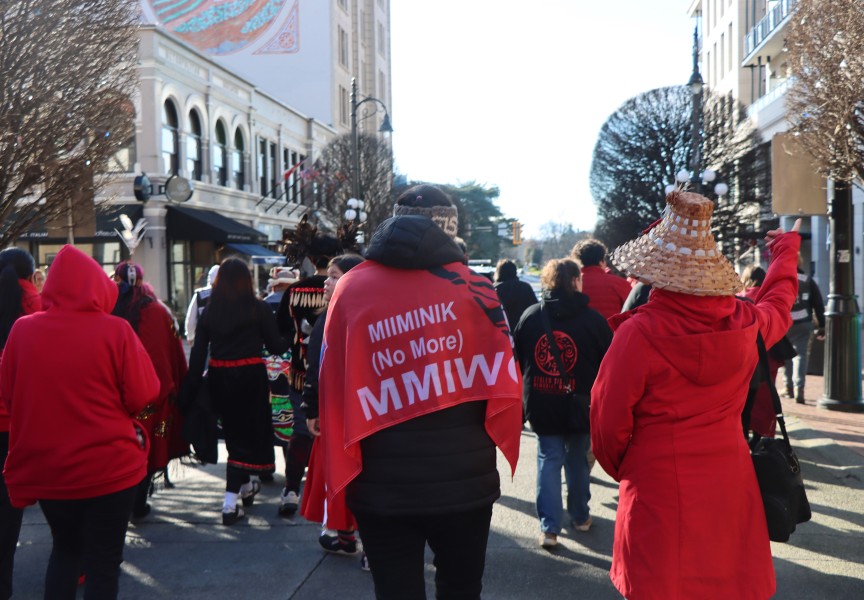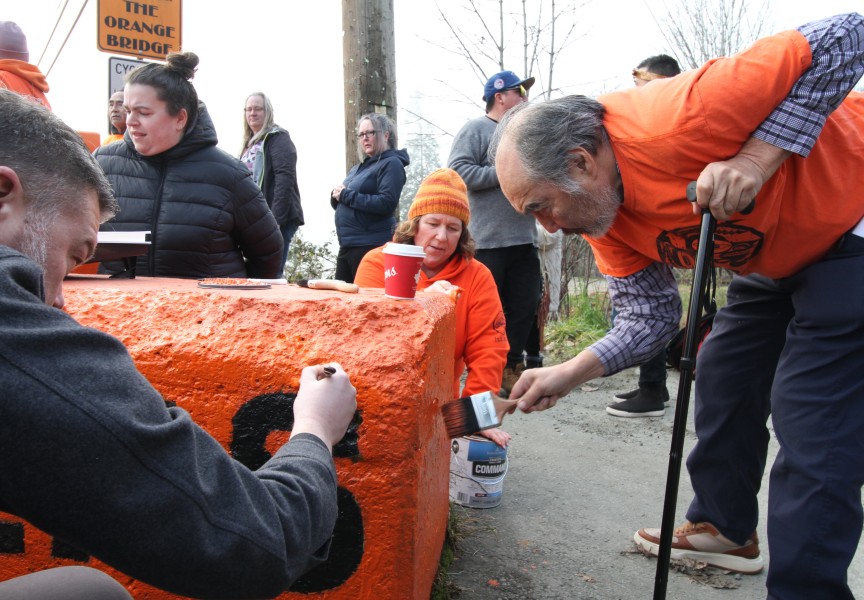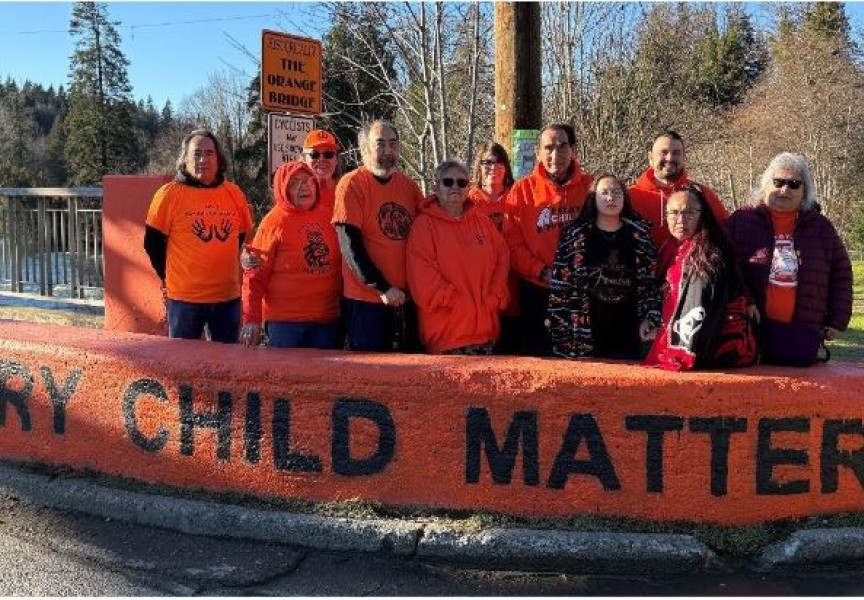Inconsistencies are emerging in the process of awarding settlements to former Indian day school students, as some have faced multiple rejections while their classmates received compensation from the class action without an issue.
For most of the 20th century, the Canadian government ran Indian day schools in reserves across the country. Indigenous children not enrolled in a residential school were required to attend these programs during daytime classroom hours. Numerous day schools operated in Nuu-chah-nulth territory, including in Ahousaht from 1940 to 1985, Kyuquot 1949-74, Yuquot 1951-68, Opitsaht 1957-71 and Ucluelet 1948-66.
As has often been the case with residential schools, some former Indian day school students have reported cases of physical, sexual and psychological abuse in the facilities. Reports state that this came from teachers, officials, students and others at the day schools – abuse that in some cases was severe enough to cause lifelong harm.
For this reason a class action lawsuit was launched, with a settlement approved by the Federal Court in August 2019. The class action’s lead plaintiff was Garry Leslie McLean, who attended the Dog Creek Day School at the Lake Manitoba First Nation from 1957-65. He died on Feb. 19, 2019, months before the day school settlement was approved.
McLean stated that he didn’t know how to speak English when he started at the day school, and was discouraged from speaking his native language of Saulteaux.
“If I spoke my native language in school, I was forced to kneel, face the corner of the classroom and repeat words which I later realized were prayers,” reads an account from Mclean on the class action’s website. “I was forced to do this for lengthy periods of time as punishment and many times my mouth was washed with Sunlight soap. If I moved from the corner, I would be strapped. I was also repeatedly sexually abused by a nun while attending Dog Creek Day School.”
The initial deadline has long passed, and many settlements have already been issued to former day school students. These range from the basic amount of $10,000 for just attending an Indian day school to $200,000 for cases of overt violence causing permanent harm. Claimants are not required to produce evidence of abuse, but are asked to rate the severity of their experience at a day school from level 1-5.
But proving that they even attended an Indian day school has been a discouraging process for some who were in kindergarten in Ahousaht during the mid 1980s. The Ahousaht Indian Day School was federally run until June 30, 1985, after which period it switched over to the First Nation, eventually becoming Maaqtusiis Elementary. Some in kindergarten classes from just before this changeover have already been compensated, but at least two are still trying after being denied while their former classmates were approved. The deadline to submit missing information to support previous claims is June 27.
Dave Frank III was at the Ahousaht Indian Day School from 1982 to 1984. He started in nursery school and went to kindergarten twice. This has been confirmed to Ha-Shilth-Sa by a former kindergarten teacher at the day school.
“I did kindergarten twice because my best friend was younger than me,” said Frank, whose application for a settlement has been denied four times.
Producing evidence that is acceptable to the class action settlement has been a challenge, but Frank hopes that an endorsement from his former teacher will change the outcome this summer.
“They sent me another letter stating that I needed proof of a report card, doctor’s report, all of the things that aren’t here anymore,” he said. “I just want something for my grandkids. My only son is going to have twins.”
Over the past few years Frank became fed up with continually asking for compensation, but was prompted to reapply by his father.
“I told him, ‘I’m tired of fighting for this. I don’t want the government’s money for my trauma anymore’,” he said, recalling the difficulty of reliving childhood pain during the application process, including abuse from one particular teacher. “She would put her hands on every kid she felt done wrong, I was one of them. I wasn’t in her class, but I still got a few hits in the lip from her. The principle would just tell my parents otherwise.”
QéLyn Titian is also hoping for a different result from the upcoming deadline. She attended the Ahousaht Indian Day School from 1983-85, starting with nursery school and including kindergarten, says Titian. She’s currently working on gathering records to support her case. A photo of a kindergarten class she attended has her picture right next to someone who received compensation for attending the day school. Her attendance in the kindergarten class also been confirmed to Ha-Shilth-Sa by the former teacher.
When she first applied Titian recalls being advised that asking for the basic amount would ensure the funds came faster, but this wasn’t a fair categorization of her experience at the Indian day school.
“I went through my life thinking that I had put all this behind me. I didn’t realize that my daily life was a reflection of everything that happened in day school,” she said, noting that the rejections for a settlement hit her personally. “I said, ‘It’s like you guys are saying that I don’t matter, that it didn’t happen’.”
The difficulty appears to relate to complications around what body was legally mandated to run the school, and at what time.
“Ahousaht Nursery (in operation September 1978 to June 30, 1985) and Ahousaht Day/Maaqtusiis Elementary (in operation after September 1, 1985) were not federally operated schools and students that attended these schools are not eligible for compensation through this settlement,” states email correspondence from the Settlement Agreement and Childhood Claims branch of Crown-Indigenous Relations and Northern Affairs Canada.
Titian recalls being re-traumatized by the application process, something that appeared to change her personality.
“I couldn’t go out, I became almost like an agoraphobe. I was scared to go out because I just felt all that pain,” she said. “Dealing with pain, all the hurt, the anguish, and thinking about everybody that was a part of inflicting that pain, how a lot of them were classmates, older students. It really changed my life in a dramatic manner.”
“It’s taken a lot to ground myself again, to say that, ‘I’m going to be okay. This doesn’t have to have a hold on my life and impact it negatively’,” added Titian.
Information about the status of Indian day school claims is available at 1-888-221-2898.










